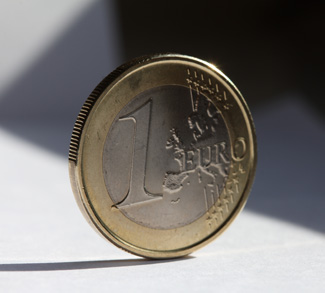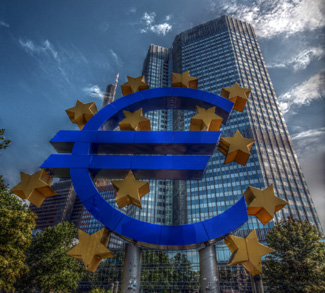After years of false starts it appears that the ‘Grexit’ is finally in motion. Yet when the dust finally settles, this week will be remembered for its market volatility – not as the time when Greece kicked itself out of the euro zone.
Cooler Heads Not Prevailing
Shrewd negotiating is what brought us to this point. Both sides are in a difficult position, and both would rather salt their own fields than be seen as bending to their opponent’s demands.
Luckily it’s not totally up to the politicians. The Greek people are poised to be the ultimate deciders of this latest act of a seemingly unending drama. Early polling shows clear support for accepting the Eurogroup’s offer in the upcoming July 5 referendum. One poll conducted over the weekend by Alco, a Greek newspaper, found 57% in favor of a deal, and another conducted by Kapa Research found 47% in favor and 33% opposed.
As far as Prime Minister Tsipras is concerned it’s a win-win situation, and this is something that has undoubtedly influenced his negotiating style. Many believe that his Syriza party wanted to default and exit the euro zone from the very beginning, though it had to drop this unpopular platform in order to be voted in by a Greek electorate still largely in favor of remaining in the euro zone. Walking away from the table in the early rounds was never an option; Tsipras had to appear like he was negotiating in good faith. But by driving an exceedingly hard bargain on Greece’s bailout conditions, he could either break the cycle of austerity or induce a ‘Grexit’ under circumstances that would rally Greeks against a cruelly vindictive Brussels establishment.
The tone and tempo of the Greek negotiating strategy supports this interpretation. IMF payments were lumped together and pushed back to the end of June, good negotiating time was needlessly wasted, and the first feasible proposal on the part of the Greeks came at the absolute last second. In short, every effort was made to drum up a sense of dire climax, and when it all predictably broke down, Tsipras turned to the Greek electorate to bless either a bad deal or a ruinous exit from the euro zone: win-win for Syriza, lose-lose for Greece.
Not to be so easily outdone, the Eurogroup negotiators have a few tricks of their own. With less than a week to go before a vote that could decide the future of the entire currency union, they played their trump card and withdrew emergency assistance to Greek banks. Now Greeks will have a stark preview of what life might be like should they vote no: empty ATMs, shuttered banks, and a deep and crippling uncertainty over what tomorrow may bring.
A Week on the Edge
We have not yet arrived at the point of no return.
Though there is no more European money to lubricate the Greek financial system, the problem has been temporarily circumvented by the government announcing a bank holiday until July 7 – two days after the referendum. By then it’s likely that the Greek people will have voted to accept the agreement and the gears will be in motion to institute the next round of the bailout.
Greece is required to pay $1.7 billion to the IMF on June 30, several days before the referendum. There have been conflicting reports as to whether or not Athens has the financial assets necessary to make the payment. If not, Greece would technically be classified by the institution as being in arrears, and not having defaulted. Again, Athens would be in a position to resume its payments should the ‘yes’ vote win and the bailout be reinstated.
Nothing conclusive has transpired yet, with everything still hinging on the Friday vote. Yet there is sure to be a black cloud looming over global equity markets all week; this is where we might see the uncertainty that many traders have taken for granted for years begin to have a more palpable impact. Bond markets in peripheral countries such as Portugal, Spain, and Italy merit particular attention. This is the frontline of possible contagion. Should debt yields here spike to unsustainable levels, European leaders will think again about whether the risk of a Greek default is actually firewalled. After all, in terms of investor sentiment, there’s an awful lot riding on just three words from Mario Draghi, words that are increasingly ringing hollow of late: ‘whatever it takes.’
It’s going to be a long week for Greece, Europe, and investors worldwide.




